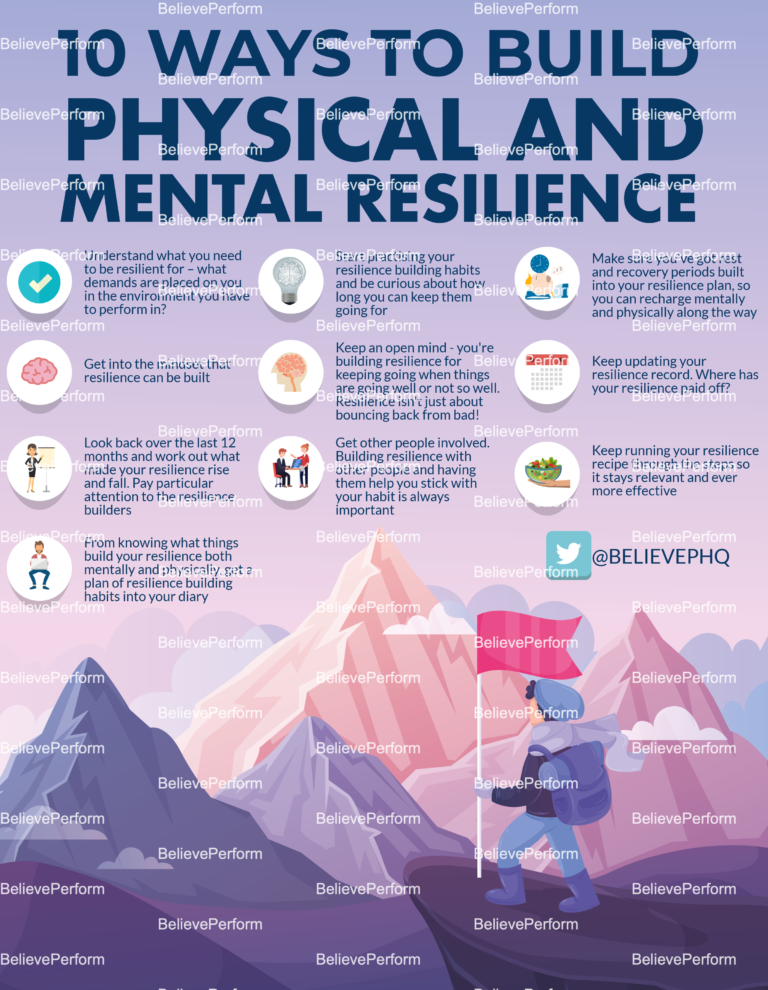Boosting Resilience & Mental Health: A Practical Guide

Understanding Resilience and its Components
Resilience is more than just bouncing back; it's a dynamic process involving adapting to stress, overcoming challenges, and learning from difficult experiences. It's a multifaceted skill, not an inherent trait, meaning it can be learned and strengthened over time. Understanding its components is the first step towards building greater resilience and improving your overall mental health.
Key components of resilience include:
-
Optimism and positive self-talk: Maintaining a positive outlook and practicing self-compassion helps you view challenges as opportunities for growth rather than insurmountable obstacles. This involves actively challenging negative thoughts and replacing them with more constructive and realistic ones. Positive affirmations and gratitude practices can be incredibly helpful.
-
Problem-solving skills: Effective problem-solving involves breaking down large problems into smaller, manageable steps, identifying potential solutions, and choosing the most effective strategy. This requires critical thinking, planning, and the ability to adapt your approach when necessary.
-
Stress management techniques: Developing healthy coping mechanisms for stress is essential for building resilience. Chronic stress can significantly impact mental health, so learning to manage it is crucial.
-
Strong social support network: Having strong relationships with family, friends, and community members provides a vital buffer against stress and adversity. These connections offer emotional support, practical assistance, and a sense of belonging.
-
Adaptability and flexibility: Life is unpredictable, and the ability to adapt to changing circumstances is crucial for resilience. This involves being open to new experiences, embracing change, and adjusting your plans when needed.
These components work synergistically. For example, strong problem-solving skills combined with a positive mindset allow you to approach challenges with confidence and effectively navigate difficult situations, leading to improved mental health and increased resilience.
Practical Strategies for Building Resilience
Building resilience is an ongoing process, not a destination. It requires consistent effort and a commitment to self-improvement. The following strategies can significantly contribute to boosting your resilience and mental health:
Cultivating a Growth Mindset
A growth mindset, popularized by Carol Dweck, focuses on the belief that abilities and intelligence can be developed through dedication and hard work. This contrasts with a fixed mindset, which assumes that these qualities are innate and unchangeable. Adopting a growth mindset is crucial for resilience because it enables you to view setbacks as opportunities for learning and growth rather than evidence of failure.
Actionable steps for cultivating a growth mindset include:
- Reframing setbacks: Instead of viewing failures as personal shortcomings, see them as valuable learning experiences that provide insights into areas for improvement.
- Focusing on learning: Shift your attention from the outcome to the process of learning and development. Embrace challenges as chances to expand your skills and knowledge.
- Embracing challenges: View challenges as opportunities for growth rather than threats to be avoided. Step outside your comfort zone and actively seek new experiences.
Mastering Stress Management Techniques
Stress is an inevitable part of life, but chronic stress can severely impair mental health. Mastering effective stress management techniques is therefore paramount for building resilience.
Effective stress management techniques include:
-
Mindfulness and meditation: Practicing mindfulness involves focusing on the present moment without judgment, which can help reduce anxiety and improve emotional regulation. Meditation can enhance mindfulness and promote relaxation.
-
Deep breathing exercises: Deep, slow breathing can calm the nervous system and reduce feelings of stress and anxiety. Simple breathing exercises can be practiced anywhere, anytime.
-
Yoga and physical activity: Regular physical activity releases endorphins, which have mood-boosting effects. Yoga combines physical postures, breathing techniques, and meditation, providing a holistic approach to stress management.
-
Spending time in nature: Connecting with nature has been shown to reduce stress and improve well-being. Spending time outdoors, whether it's a walk in the park or a hike in the mountains, can be incredibly restorative.
-
Time management strategies: Effective time management can reduce stress by helping you prioritize tasks, meet deadlines, and avoid feeling overwhelmed. Techniques like the Pomodoro Technique or Eisenhower Matrix can be particularly helpful.
Nurturing Strong Social Connections
Social support is a critical component of resilience. Strong relationships provide emotional support, a sense of belonging, and practical assistance during challenging times. Nurturing these connections is essential for mental well-being.
Ways to build and maintain healthy relationships include:
-
Prioritizing quality time with loved ones: Make time for meaningful interactions with family and friends. Engage in activities you enjoy together, and actively listen when they share their thoughts and feelings.
-
Joining social groups or clubs: Participating in activities that align with your interests can provide opportunities to meet new people and build connections with like-minded individuals.
-
Seeking professional support when needed: Don't hesitate to reach out for professional help if you're struggling with social isolation or other mental health challenges. Therapists, support groups, and online communities can provide valuable support and guidance.
Prioritizing Self-Care
Self-care is not selfish; it's essential for maintaining mental well-being and building resilience. Prioritizing self-care involves engaging in activities that nourish your physical, emotional, and mental health.
Practical self-care suggestions include:
-
Getting enough sleep: Aim for 7-9 hours of quality sleep each night. Sleep deprivation can negatively impact mood, energy levels, and cognitive function.
-
Maintaining a healthy diet: Nourishing your body with a balanced diet provides the energy and nutrients needed to cope with stress and challenges.
-
Engaging in regular physical activity: Regular exercise has numerous physical and mental health benefits, including stress reduction and mood improvement.
-
Setting boundaries: Learning to say "no" to requests that drain your energy or compromise your well-being is crucial for self-protection.
-
Practicing self-compassion: Treat yourself with the same kindness and understanding you would offer a friend in need. Acknowledge your strengths and limitations, and forgive yourself for mistakes.
Seeking Professional Help for Mental Health
While self-help strategies are crucial, sometimes professional help is necessary. Seeking professional support is a sign of strength, not weakness. Don't hesitate to reach out if you're struggling with your mental health.
When to seek professional help:
- Experiencing persistent feelings of sadness, hopelessness, or anxiety.
- Difficulty functioning in daily life due to mental health challenges.
- Suicidal thoughts or self-harm behaviors.
Resources for finding mental health support include: therapists, psychiatrists, psychologists, support groups, and helplines. Many online resources and apps can also provide guidance and support. Remember, seeking help is a sign of self-care and a crucial step towards improving your mental well-being. Breaking the stigma surrounding mental health treatment is essential for fostering a culture of support and understanding.
Conclusion
Building resilience is a process that involves a multifaceted approach to mental well-being, including effective stress management, strong social connections, and consistent self-care. This guide has outlined practical strategies to improve your mental health and boost your resilience. Remember, both proactive self-help strategies and seeking professional help when needed are vital. Start building your resilience and improving your mental health today! Implement the practical strategies outlined in this guide to boost your resilience and cultivate a more positive and fulfilling life. Prioritizing your mental well-being is an investment in your overall health and happiness.

 Sandylands U The Ultimate Tv Guide For Country Region If Applicable
Sandylands U The Ultimate Tv Guide For Country Region If Applicable
 Trinidad Trip Curtailed Dancehall Artists Visit Under Scrutiny Kartel Shows Solidarity
Trinidad Trip Curtailed Dancehall Artists Visit Under Scrutiny Kartel Shows Solidarity
 Where To Invest A Geographic Analysis Of The Countrys Top Business Locations
Where To Invest A Geographic Analysis Of The Countrys Top Business Locations
 Peppa Pig A New Baby Joins The Family Gender Reveal
Peppa Pig A New Baby Joins The Family Gender Reveal
 Dexter Resurrection The Comeback Of A Popular Villain
Dexter Resurrection The Comeback Of A Popular Villain
